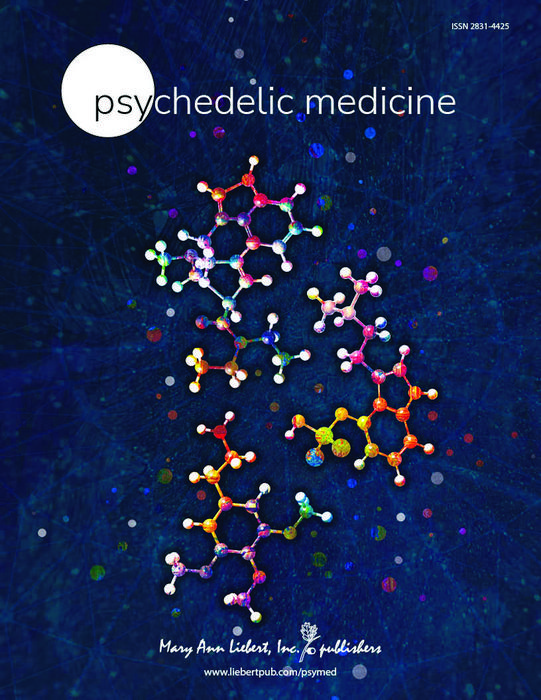A groundbreaking study recently published in the peer-reviewed journal Psychedelic Medicine sheds new light on the attitudes of U.S. Muslims toward the use of psychedelics in mental health therapy. This research explores the complex intersection of cultural, religious, and educational factors shaping perceptions of an emerging therapeutic domain. Psychedelic-assisted therapy, still in its nascent stages within mainstream medicine, offers promising alternatives for treating a host of mental health conditions. However, acceptance varies significantly across diverse populations, necessitating nuanced understandings that this study ambitiously tackles.
The investigation centered on a survey methodology targeting Muslims residing in the United States (MLUS), a demographic historically characterized by hesitancy or outright rejection of contemporary mental health services. The researchers, led by Dr. Syed Fayzan Rab from the Emory Center for Psychedelics and Spirituality, conducted an empirical analysis to gauge openness toward psychedelics as legitimate therapeutic tools. Notably, the findings reveal a surprising degree of moderate openness to psychedelic therapies within the population, which marks a potential paradigm shift in attitudes previously thought to be uniformly conservative.
Central to the study’s conclusions was the identification of a subtle yet statistically significant inverse correlation between participants’ rejection of mental health services generally and their acceptance of psychedelic treatments specifically. This nuanced relationship suggests that while skepticism toward mainstream mental health care persists, there is a budding receptivity toward novel approaches that might better align with cultural or spiritual values. Such complexity highlights the importance of tailored educational strategies in increasing acceptance and, potentially, utilization.
Education emerged as a particularly influential variable, with higher levels of formal schooling strongly correlating with favorable attitudes toward both mental health services and psychedelics. This relationship underscores the crucial role of information dissemination and public awareness in breaking down entrenched stigmas. Psychedelic medicine remains a highly technical and misunderstood field, so empowering at-risk communities with accurate knowledge could catalyze more informed and positive engagement.
The study’s authors advocate for future research endeavors to build on these insights by developing brief, focused educational interventions targeting Muslim populations. Such interventions could be experimentally evaluated for their effectiveness in changing perceptions and reducing barriers to acceptance. This forward-looking approach aligns with broader public health strategies that emphasize culturally competent communication and community-based engagement to enhance mental health equity.
Beyond the immediate implications for the Muslim American community, this research contributes to a growing body of literature examining how cultural and religious identities mediate responses to medical innovations. Psychedelic substances, due to their psychoactive and often spiritual nature, invoke unique considerations regarding religious beliefs and practices. Understanding these dynamics is essential for clinicians and researchers invested in the responsible integration of psychedelics into therapeutic frameworks.
The journal Psychedelic Medicine serves as the premier platform for disseminating such cutting-edge research. Established to cover all facets of psychedelic science—from molecular pharmacology to translational clinical applications—the journal provides a critical venue for dialogue and knowledge sharing. Its interdisciplinary scope reflects the multifaceted challenges and opportunities inherent in translating psychedelic compounds from experimental to clinical settings.
Mary Ann Liebert, Inc., the publisher behind Psychedelic Medicine, has long been at the forefront of supporting scientific innovation through rigorous peer review and high-quality publishing. Their commitment to advancing biotechnology, clinical medicine, and public health is evident in the diverse portfolio of journals under their umbrella. By fostering robust academic discourse, they amplify research that challenges conventional paradigms and expands therapeutic horizons.
Indeed, psychedelics themselves represent a significant departure from traditional pharmacological interventions. Substances such as psilocybin, MDMA, and LSD interact with neurobiological pathways in distinct ways, often inducing altered states of consciousness that facilitate episodic memory processing, emotional regulation, and neuroplasticity. These mechanisms underpin their potential efficacy in treating refractory conditions like depression, anxiety, addiction, and demoralization—questions extensively explored within Psychedelic Medicine.
However, uptake of these therapies depends not only on clinical validity but also on sociocultural acceptance. In the context of US Muslim communities, historical reticence towards mental health services may stem from stigma, distrust, or conflicting religious interpretations. Psychedelic-assisted therapy, involving profound psychological experiences, may present additional hurdles or invitations depending on individual and collective frameworks of meaning.
Addressing these concerns requires interdisciplinary collaboration among neuroscientists, psychiatrists, anthropologists, and religious scholars. The study by Dr. Rab and colleagues exemplifies this integrated approach, blending survey data with cultural insight to map a realistic landscape of attitudes. Their emphasis on education as a mediator of openness points to practical avenues for engagement designed to respect and incorporate faith-based values while promoting health.
The significance of this research extends beyond academic curiosity; it offers a blueprint for enhancing mental health inclusivity in a nation characterized by diversity. By centering historically underserved populations in psychedelic research discourse, the findings foster a more equitable and culturally attuned science. This paradigm moves psychedelic therapy closer to mainstream adoption, not only as a clinical tool but as part of a broader strategy to undo barriers rooted in culture and knowledge gaps.
In aggregate, this study in Psychedelic Medicine provides pivotal insight into the evolving landscape of mental health therapy acceptance among US Muslims. It navigates the interplay between skepticism and curiosity, tradition and innovation, stigma and hope. As the therapeutic potential of psychedelics gains validation, understanding the cultural vectors influencing access and acceptance will be indispensable for practitioners, policymakers, and communities alike.
Subject of Research: People
Article Title: Attitudes of U.S. Muslims Toward Psychedelics
News Publication Date: 26-May-2025
Web References:
- https://www.liebertpub.com/doi/10.1089/psymed.2024.0044
- https://home.liebertpub.com/publications/psychedelic-medicine/673/overview
References:
Rab, S.F., et al. “Attitudes of U.S. Muslims Toward Psychedelics.” Psychedelic Medicine, vol. (2025). DOI: 10.1089/psymed.2024.0044.
Image Credits: Mary Ann Liebert, Inc.
Keywords: Clinical psychology, Mental health, Religion, Islam, Cultural anthropology, Cultural practices, Cultural studies, Clinical medicine, Health care, Human health, Medical specialties, Pharmaceuticals, Pharmacology, Health equity, Human behavior, Drug abuse, Substance related disorders, Substance abuse, Alternative medicine




